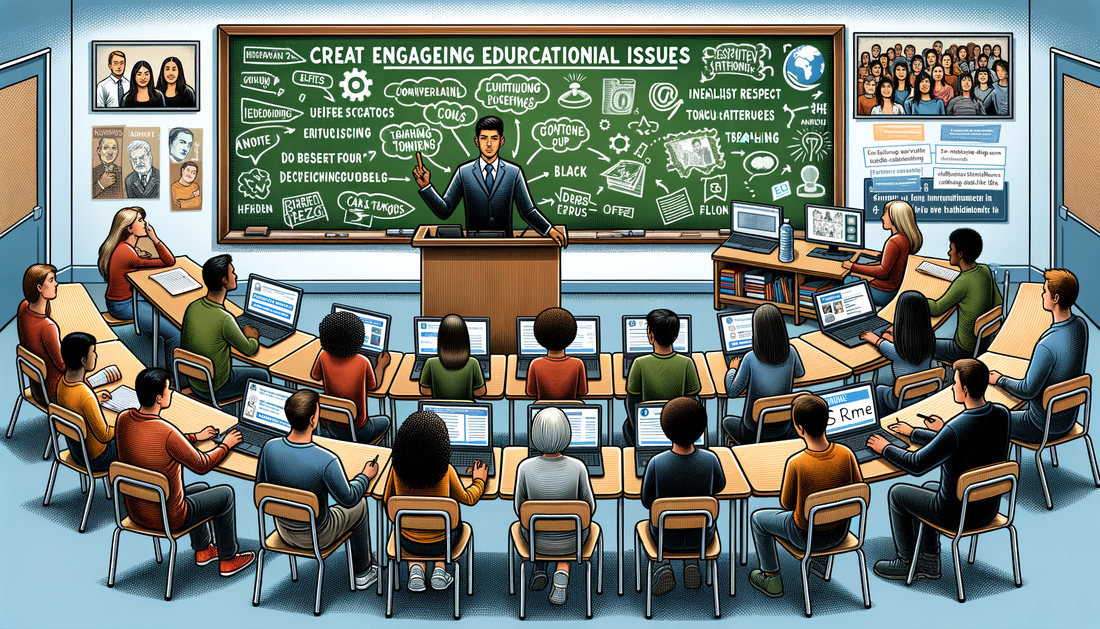Creating Engaging Educational Materials for Controversial Topics
Tony Torres
Mastering the Art of Crafting Engaging Educational Content on Controversial Topics
Teaching controversial topics can be a daunting task, but it's a critical component of comprehensive education that fosters critical thinking and open dialogue. In this guide, we'll explore effective strategies for creating engaging educational materials that not only inform but also inspire students to participate in meaningful discussions.
Understanding the Importance of Controversial Issues in Education
Controversial issues present an opportunity for students to engage with multiple perspectives, develop empathy, and learn the art of respectful debate. It's essential that educational content on these topics is designed to be thought-provoking and balanced.
Strategies for Creating Balanced Educational Content
When dealing with sensitive subjects, it's crucial to present information in a way that is unbiased and fact-based. Use credible sources, provide context, and encourage students to explore different viewpoints.
Engaging Students with Interactive Materials
Interactive materials such as debates, role-plays, and case studies can make learning about controversial issues more relatable and impactful. These methods encourage active participation and deeper understanding.
Utilizing Technology to Enhance Learning
Technology offers a plethora of tools to make educational content more engaging. From multimedia presentations to online forums, technology can help bring controversial topics to life and facilitate discussion.
Encouraging Critical Thinking and Respectful Discourse
One of the primary goals of teaching controversial topics is to develop students' critical thinking skills. Encourage them to question assumptions, analyze arguments, and respect differing opinions.
Assessing the Impact of Your Educational Materials
It's important to assess how your materials are received by students. Gather feedback, observe classroom interactions, and be prepared to make adjustments to improve the learning experience.
Dealing with Resistance and Controversy
Resistance is a natural part of teaching controversial topics. Be prepared to address concerns from students, parents, and administrators with patience and evidence-based responses.
Continuously Improving Your Approach
Creating engaging educational content is an ongoing process. Stay informed about current events, pedagogical methods, and student needs to keep your materials relevant and effective.
Conclusion
Teaching controversial topics requires a delicate balance of information, engagement, and respect. By employing the strategies outlined in this guide, educators can create materials that not only inform but also empower students to become informed, thoughtful citizens.
